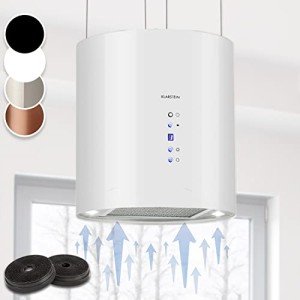
19
MayYou'll Be Unable To Guess Kitchen Island Extractor's Benefits

The Essential Guide to Kitchen Island Extractors: A Comprehensive Overview
In contemporary kitchen style, the kitchen island has actually emerged as a central feature, serving both visual and functional purposes. To improve the cooking experience, lots of house owners are going with kitchen island extractors, which not just get rid of cooking odors however also add to the kitchen's overall design. This post will check out various elements of kitchen cooker hood island extractors, including their benefits, types, setup considerations, and maintenance. In addition, common FAQs will likewise be addressed to provide a clearer understanding of this innovative kitchen function.
Understanding Kitchen Island Extractors
Kitchen island extractors are ventilation systems installed above kitchen islands that help in getting rid of smoke, steam, and odors produced during cooking. Unlike standard hoods that are installed versus walls, island extractors hang from the ceiling, making them ideal for open-plan designs that include a central kitchen island.
Advantages of Kitchen Island Extractors
Improved Air Quality: Best fit for busy cooking areas, island extractors substantially enhance the air quality by filtering out air-borne impurities.
Improved Aesthetics: Available in different designs and finishes, these extractors can complement a kitchen's design, kitchen island extractor including a touch of elegance.
Space Optimization: They free up counter space, as they do not require wall mounting, enabling more flexibility in kitchen style.
Personalized: Many designs provide adjustable fan speeds, lighting functions, and a choice of ducted or recirculating options to match specific requirements.
Kinds Of Kitchen Island Extractors
1. Ducted Extractors
Ducted kitchen island extractors are connected to a duct system that vents air exterior. They are frequently preferred for their performance in getting rid of smoke and odors.
Pros:
- Better air quality
- More reliable at smell removal
- Quiet operation
Cons:
- More complex setup
- Needs structural alterations
2. Recirculating Extractors
Recirculating extractors filter air through charcoal or grease filters and return the purified air back into the kitchen. These are ideal for areas where ductwork isn't practical.
Pros:
- Easier setup
- Less intrusive
Cons:
- Less effective at odor removal
- Regular filter replacements needed
3. Downdraft Extractors
Downdraft extractors are integrated into the counter top and increase up during use. Although they are not as popular as traditional hoods, they are an excellent option for minimalistic designs.
Pros:
- Space-saving design
- Ideal for particular layouts
Cons:
- Less reliable compared to traditional extractors
- Higher setup expenses
| Type | Pros | Cons |
|---|---|---|
| Ducted | Exceptional air quality, quiet | Complex installation |
| Recirculating | Easy installation, less invasive | Routine filter modifications essential |
| Downdraft | Space-saving, smooth style | Higher costs, less reliable |
Installation Considerations
Installing a Kitchen Island kitchen island extractor Extractor (Https://Cyclenews6.Bravejournal.Net/) needs careful preparation. Here are some vital elements to bear in mind:
Height: The ideal height for setting up an extractor is 30-36 inches above the cooking surface. For gas ranges, the height ought to be closer to 36 inches.
Size: Ensure the extractor is 6-12 inches wider than the cooktop on all sides for optimal performance.
Ducting: If opting for a ducted extractor, prepare for duct placement. This might require ceiling modifications or additional building work.
Electrical Supply: Ensure compliance with local codes and policies when installing electrical parts for lighting and motor functions.
Design Compatibility: Consider the kitchen's total design style and select an extractor that harmonizes with existing aspects.
Upkeep and Care
To ensure optimum efficiency, routine upkeep of kitchen island extractors is vital. Here are some ideas:
Clean Filters Regularly: Depending on the type of extractor, filter cleaning or replacement need to be done every 1-3 months.
Check the Motor: Regularly check the motor and fan for particles accumulation and guarantee they are working correctly.
Lube Moving Parts: Lubrication will extend the life of your extractor and lower sound levels.
Look For Duct Blockages: If you have a ducted system, periodically look for any blockages or damage to the ductwork.
Frequently Asked Questions About Kitchen Island Extractors
1. How do I select the right size extractor for my kitchen?
Picking the right size extractor involves measuring the width of your cooktop and guaranteeing the extractor fan for island hob is 6-12 inches wider on either side.
2. Are kitchen island extractors noisy?
Most modern-day kitchen island extractors are designed for quiet operation, especially at lower fan speeds. However, noise levels can vary based on design and settings.
3. What is the typical expense of a kitchen island extractor?
Prices can range from ₤ 200 to over ₤ 2,000, depending on the brand name, type, and features. Setup expenses will differ based on regional labor rates and the intricacy of the installation.
4. Can I install an extractor myself?
While some house owners go with DIY setup, it is recommended to work with a professional, especially for ducted systems, to ensure security and compliance with local codes.
5. How often should I have my kitchen island extractor serviced?
An annual service by a professional is recommended for ducted systems to look for obstructions, while recirculating systems should have filters changed every few months.
In conclusion, kitchen island extractors are both practical and elegant options for modern-day kitchen areas. With numerous types, installation factors to consider, and maintenance requirements, it's important for homeowners to educate themselves about the different options offered. By picking the ideal extractor fan for island hob, they can produce a pleasant cooking environment and boost the kitchen's functionality and appearance.


Reviews